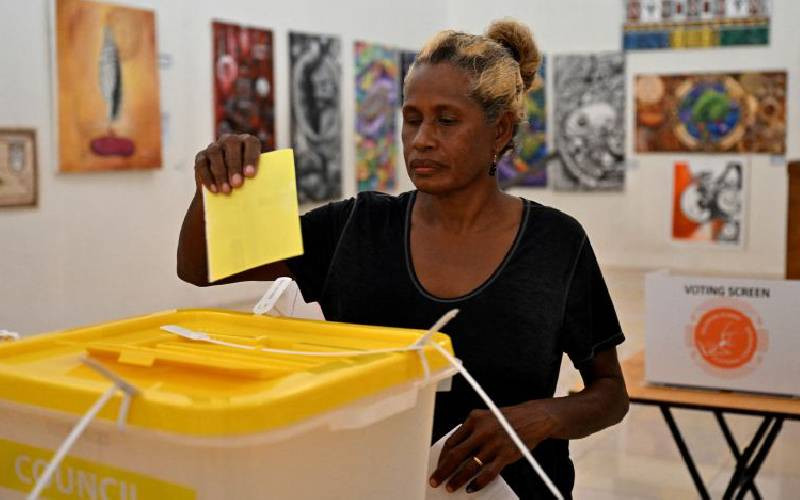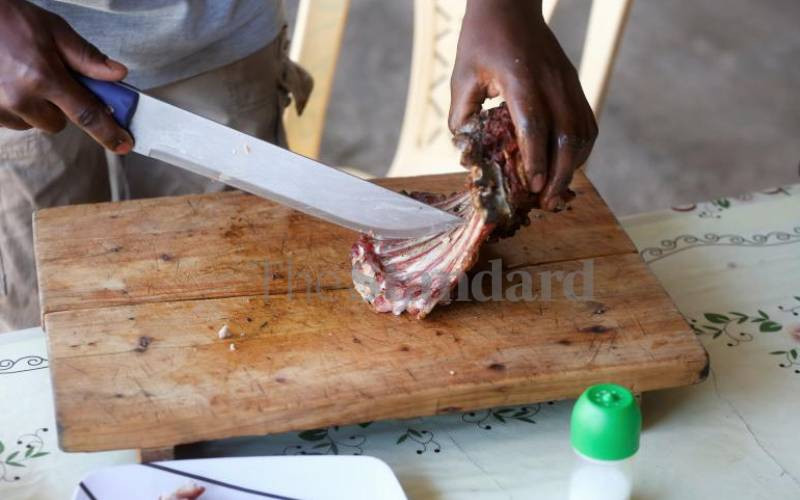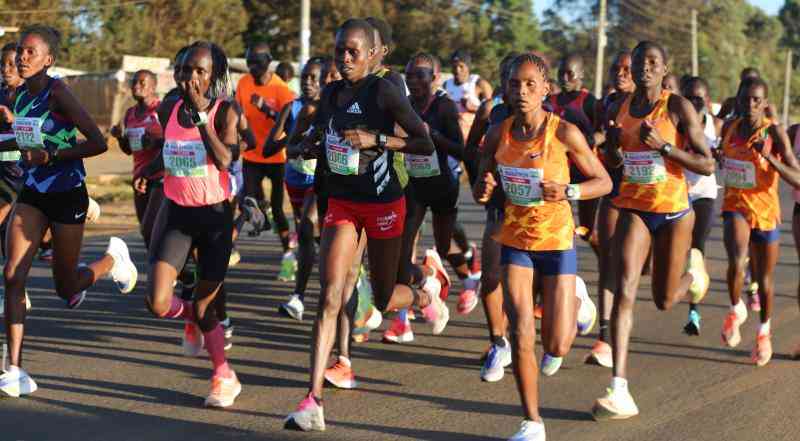Desire to look younger is driving the Chinese population to import tonnes of donkey meat from Kenya, which is in turn threatening to reduce the donkey numbers, a report reveals.
The report published in January this year shows that China’s demand for donkey hides is hinged on the skin’s medicinal properties.
A gelatinous material- E’jiao - is believed to have anti-ageing and libido-enhancing properties, fueling the demand for donkey hides.
The report, by UK-based charity, The Donkey Sanctuary, points out that demand for donkey hide is outstripping supply.
It shows that 1.8 million donkey hides are traded every year while global demand is estimated at between four to ten million skins.
As a result, donkey slaughtering has gone frenzy. The Donkey Sanctuary report suggests that the animal is being wiped out mainly due to Chinese appetite for medicinal components in the animal’s hide. There are two abattoirs for donkeys in Kenya: Goldox Ltd, in Mogotio, Baringo County, and another one in Naivasha, Nakuru County. Between 200 and 300 donkeys are slaughtered every day at Goldox, George Ogola, an officer at the company said in a phone interview.
Goldox opened in Kenya in May 2016. Mr Lu Donglin, a Chinese national, who owns it, told a local publication that about 600 donkeys are received at the abattoir on a good day and about 400 when the supply is low. Ogola told Sunday Standard that both meat and skin are harvested at Goldox. He however didn’t specify whether the products are exported to any specific country.
Only a year has gone by and already those opposed to slaughtering of donkeys are seeing their worries come true.
There are about 3 million donkeys left in China, from 11 million in the early 1990s. China has hence trained its eyes to the rest of the world to continue its e’jiao-eating lifestyle.
Black market
With its large donkey population and close trade relations with China, Africa is a key target for donkey buyers and Kenya is well in the mix.
Before Goldox opened shop in Baringo an adult donkeyfetched about Sh2,000. But immediately the company’s operations began the price increased fourfold to Sh8,000.
“There is no policy governing the slaughter of these animals. As it is today we don’t know how many donkeysare still alive in Kenya since the trade in donkeys started,” says Dr Solomon Onyango, a veterinary officer and the head of programmes at The Donkey Sanctuary Kenya.
The Kenyan government legalised the sale of donkey meat in 1999.
In 2014, businessman John Kariuki constructed a slaughterhouse in Naivasha after he discovered donkeymeat had a ready market in China.
Stay informed. Subscribe to our newsletter
“I have been to China where there is high demand and market for donkey meat and this slaughterhouse will take care of that,” he told the press then.
Indeed, China seems to be the centripetal force pulling in trade in donkey body parts and products.
Goldox is operating a legal business. This notwithstanding, Donkey Sanctuary Kenya has expressed worry that a black market is also flourishing.
“Donkeys are fetching way higher than they did a few years back. The demand for donkeys has also fuelled cases of donkey theft, which are then sold to abattoirs,” Dr Onyango says.
Gean Gilchrist, the Director of animal welfare at Kenya Society for protecting and care of Animals says the trade in donkey meat and hide is working against poor rural communities.
“When alive, a donkey can be much more beneficial to a rural farmer. When sold once then killed for just Sh8,000, these benefits are wiped out at once,” Gilchrist says.
Recently, John Kariuki, the owner and CEO of Star Brilliant Donkey abattoir, told Africa Uncensored that One hide goes for Sh14,200 while an actual animal, ironically, averages at Sh10,000.
[email protected]
 The Standard Group Plc is a
multi-media organization with investments in media platforms spanning newspaper
print operations, television, radio broadcasting, digital and online services. The
Standard Group is recognized as a leading multi-media house in Kenya with a key
influence in matters of national and international interest.
The Standard Group Plc is a
multi-media organization with investments in media platforms spanning newspaper
print operations, television, radio broadcasting, digital and online services. The
Standard Group is recognized as a leading multi-media house in Kenya with a key
influence in matters of national and international interest.
 The Standard Group Plc is a
multi-media organization with investments in media platforms spanning newspaper
print operations, television, radio broadcasting, digital and online services. The
Standard Group is recognized as a leading multi-media house in Kenya with a key
influence in matters of national and international interest.
The Standard Group Plc is a
multi-media organization with investments in media platforms spanning newspaper
print operations, television, radio broadcasting, digital and online services. The
Standard Group is recognized as a leading multi-media house in Kenya with a key
influence in matters of national and international interest.









